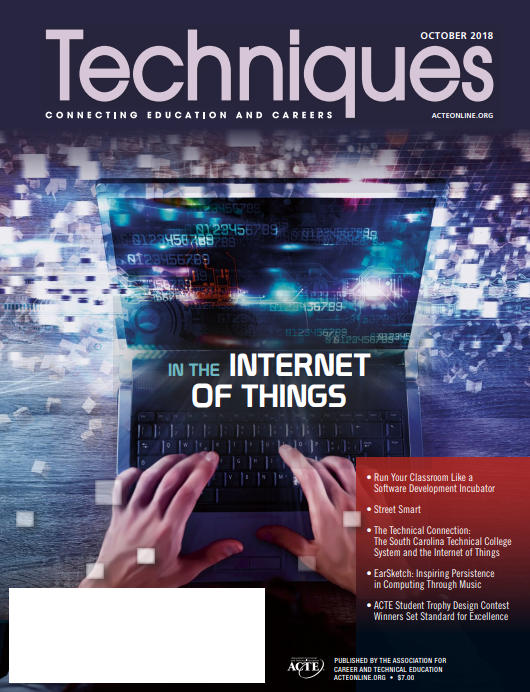“[EarSketch] teaches and sets us free. It’s like our own playground wherein we’re able to make whatever we want. We finished our projects,” said a young, female computer science student. “Yes, I consider myself a programmer.”
During a focus group, the student quoted expressed a changing perception of her interest in computer science and of herself as a programmer. This student exemplifies the significant improvement in both student engagement and content knowledge we have found to occur when students use EarSketch, a browser-based learning platform where they explore introductory programming through music remixing.
EarSketch engages students by enabling them to learn computing creatively through personal expression and music. Students learn elements of computing and mix music samples. They write Python or JavaScript code to algorithmically create music in popular genres including but not limited to trap, dubstep, hip-hop, rock and pop. Coding concepts (e.g., loops, lists, and user-defined functions) mix musical samples, beats and effects to develop tracks that students can access and modify anywhere with a broadband internet connection.
Curriculum and Teacher Materials
The EarSketch curriculum is aligned with the programming standards of the College Board’s advanced placement (AP) computer science principles (CSP) course, as well as a related (non-AP) computer science principles course that is standard for high school students in the state of Georgia. AP CSP was launched in the fall of 2016 with a goal to offer a rigorous introductory curriculum that would broaden participation in computer science. The course introduces students to the creative aspects of programming, abstractions, algorithms, large data sets, the internet, cybersecurity, and the impacts of computing across multiple domains (Astrachan et al., 2011).
Thirty-five CSP learning objectives are organized around seven big ideas and six computational thinking practices. Its curricular framework is broader than that of traditional computer science courses, with a focus on collaboration, analysis, communication, creativity and connections to other disciplines. In contrast to other introductory computing courses, CSP is language-agnostic. It does not mandate a specific programming language or problem domain: Students submit performance tasks created with a programming language and/or within an environment of their choice. This all facilitates the integration of EarSketch.
Computing teachers may be unfamiliar with this approach and the idea of teaching CSP within the domain of music. We have thus developed scaffolding and supports for teachers that include lesson plans, slides, worksheets, mini-tasks, rubrics and other teaching materials; face-to-face and online professional development; and an interactive community where teachers can ask questions, share materials and review additional training resources.
ACTE members can read the full article, “EarSketch: Inspiring Persistence in Computing Through Music,” in the October issue of Techniques today. Watch your mailboxes for the print edition to appear this week!
Not a member? Join! ACTE is the largest national education association dedicated to the advancement of education that prepares youth and adults for successful careers.






